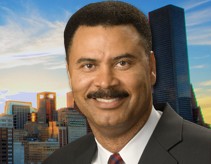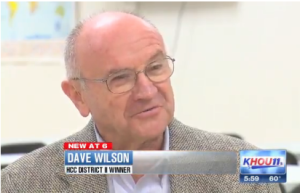You’ve heard it said that the Harris County Jail is the largest mental health facility in Texas. Here’s a great story in the Observer by Emily DePrang that illustrates what that really means.

Of the 9,000 or so inmates here, more than a quarter take medication for mental illness, meaning that many days, this jail treats more psychiatric patients than all 10 of Texas’ state-run public mental hospitals combined.
Most of those patients live in the general population and get their psychotropic drugs alongside inmates taking blood thinners or insulin. But some stay here on the second floor, in the Mental Health Unit, an award-winning program that functions as a full psychiatric hospital within the jail. The unit can treat almost 250 inmates at a time for serious mental illnesses. All receive medication; some also attend therapy and visit with caseworkers who help them plan for life after release. Many leave the jail more stable and connected to social services than when they came in.
Outside the jail, Houstonians with mental illness often can’t find those kinds of services. Harris County has one of the most underfunded public mental health systems in a state that consistently ranks last, or almost last, in per capita mental health spending. The Mental Health Needs Council, a policy advisory group made up of mental health practitioners, estimates that in 2012, almost 70,000 adults and more than 14,000 children in Houston with severe mental illness needed help from the public system but couldn’t get any. Hundreds of people are currently on a waiting list for basic mental health services—and that’s progress, down from 1,600 during the summer.
This isn’t because of some inefficiency in the public system versus the jail, but because of who pays for each. Community-based mental health care is funded mostly by state government, and for years, the Texas Legislature starved its public system. Like all public services, community-based mental health care was never flush, but in 2003 lawmakers slashed funding and limited treatment to just three diagnoses. Thousands of people who relied on the system were suddenly ineligible. Many went into crisis and were picked up by police or wound up in emergency rooms, where they stayed briefly, stabilized, and were released, still unable to get treatment in the community.
A crisis-driven system evolved, one that was inefficient, ineffective and unkind. It was also expensive. While the state initially saved money in 2003 and with subsequent cuts, it passed the cost on to counties, which had to deal with the real consequences of untreated mental illness. In Harris County, the number of law enforcement calls about people in psychiatric crisis jumped from fewer than 11,000 in 2003 to more than 27,000 in 2012.
As people with mental illness filled the jails, counties like Harris were forced to act. They added mental health programs to their law enforcement agencies and jails, a humane move, but one that shifts costs from the state to local taxpayers and blurs the lines between institutions designed to punish and those meant to treat. That’s how Texas’ largest jail became its largest mental hospital. And that’s why many Texans can get better mental health treatment inside the jail than out of it.
Again, when I say that Rick Perry and his cronies don’t want people to get health care, I’m talking about more than just the refusal to expand Medicaid. But the refusal to expand Medicaid is still a big part of the problem.
White men, age 22 to 55, who are medically indigent—meaning they don’t have insurance and aren’t eligible for Medicaid—are the group most likely to end up both needing the public mental health system and, at some point, going to jail. Preston Murski is all these things. He’s a Houston native, 22, blond and chatty, and he slips easily into a grin. But he faces an uncertain future. When we meet in the Harris County Jail’s chaplaincy room—just a concrete floor, plastic chairs, a dry-erase board and a battered wooden podium—he flickers between bravado and worry. Like all the inmates, he wears baggy orange clothes, but a purple hospital wristband signifies that he’s in the Mental Health Unit.
“I started coming to jail when I was 14,” Murski says. “It’s been in and out, doing six months in, a month out, a year in. I’ve been with MHMRA since I was 14.” MHMRA is the Mental Health and Mental Retardation Authority of Harris County, the primary provider of public mental health services for medically indigent Houstonians like Murski.
“When I was in juvenile [detention], they give you one or two free refills of your medication. My medication costs like $800 because I take a lot of Seroquel, and I take a lot of Adderall. So [after] I get that free refill, my dad’s like, ‘I’m not paying this money. I ain’t got the cash.’ And I’m not on insurance, nothing. I’m just walking around. So meds run out. I go to jail. It’s always been the story of my life. If my meds run out, I go to jail.”
Access to services for juveniles is a major challenge in Houston. The Mental Health Needs Council found that in 2012, about 19,300 children and adolescents in Harris County suffered serious emotional disturbance and needed help from the public system. Most had already developed substance abuse problems and 40 percent had been exposed to trauma. But 74 percent of those 19,300 kids received no mental health treatment at all.
Many ended up in trouble with the law. Almost 69 percent of the children referred to the Harris County Juvenile Probation Department in 2012 had a diagnosable mental illness.
[…]
But once in the jail, help is available. Dr. Scott Hickey, director of outcomes management for the county mental health authority, says that’s both good and a symptom of the public system’s problems. “There are any number of individuals who have dropped out of the treatment system who reconnect through our jail mental health services,” Hickey wrote in an email. “In addition, there are many who received care only through the jail [T]he root cause of many system problems, including this one, is our inadequate outpatient service capacity.”
The mental health authority estimates it would need a fourfold budget increase to satisfy the current demand in Harris County. But there is a way lawmakers could decrease demand: expanding Medicaid. Andrea Usanga, policy director for Mental Health America of Harris County, an advocacy group, says that had Texas chosen to expand Medicaid under the Affordable Care Act (aka Obamacare), it would have made an enormous difference. “Close to 90 percent of the individuals who are currently served in the public mental health and substance abuse system would be eligible for Medicaid if it were expanded,” she says. Gov. Rick Perry’s choice not to expand it, she says, was “all political. It’s really sad. Ideology hurts everyday people all the time. Everyday people are suffering.”
Harris County’s public mental health authority not only lacks the funds to meet the demand in the community but also can’t offer whole areas of needed services, Usanga says. When I tell her about Murski’s alcohol problem, she nods. “I’m not surprised.” She says that one of the major barriers to effective mental health care is that the public system still treats mental illness and substance abuse separately. “If you have a substance abuse issue, there’s a very, very high likelihood that you’re having some type of mental health issue, too,” she says. “MHMRA will treat the mental health issue, but you can’t go to MHMRA to learn how to safely withdraw from substances. Our system is not set up to do this. So it’s a very ineffective way to be dealing with folks with co-occurring issues.”
We’ve discussed this before. Expanding Medicaid wouldn’t solve all problems, but it would be a huge step forward and would be a big help for an awful lot of people. Really, we’d all benefit from it. We’d benefit by not having to pay for costlier and less effective care for fewer people. We’d benefit by the increased economic potential of thousands of people who could be productive citizens if only they could get the help they desperately need. We’d benefit by having a lower crime rate and by being able to direct police resources to more productive pursuits. And we’d benefit directly because whether we realize it or not, we all almost certainly know someone who needs this help but is unable to get it. We are perfectly capable of making this situation better. We just have to choose to do it. That’s not going to happen with the current state leadership. There’s really not much more to it than that.























